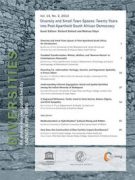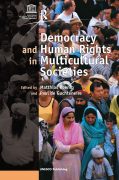Published in the UNESCO Diversities (vol. 4, no. 1, 2002) and subsequently re-printed in Democracy and Human Rights in Multicultural Societies (ed. by Matthias Koenig and Paul de Guchteneire, Routledge, 2007), this essay analyses the different policies employed by the British government to manage the conflict in Northern Ireland between the late 1960s and the conclusion of the Good Friday Agreement in 1998. Following an introduction to the nature of the conflict, its conflicting interpretations and their consequences for conflict management strategies, success and failure of individual British strategies to manage the conflict are judged by the objectives sought to be accomplished, and by the responses of paramilitary organisations and of the electorate. Taking account of wider contextual factors with an impact on the development of the conflict, the article presents a comprehensive picture of the success or failure of each strategy examined and of the reasons for such success or failure. A concluding section outlines the major developments since 1998 and assesses the likelihood of success for this latest attempt at resolving the conflict.
The article version of this essay is an open-access publication.


